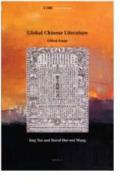
Jing Tsu and David Der-wei Wang, eds.
Brill Press
Publication Date: 2010
This path-breaking collection of critical essays introduces a diverse range of approaches to open up the field of modern Chinese literature to new cross-regional, local, and global analyses. Each of the ten essays deals with a particular conceptual problem or case study of different locations and modalities of Chinese-language, or Sinophone, production. From language to music, literature to popular culture, minority politics to internal diaspora, theories of sinography to China’s quest for the Nobel Prize, this volume brings together leading and new voices in the study of Chineseliterature from a variety of comparative and intranational perspectives. Contributors include scholars from Asia, North America, Europe, and Southeast Asia. It is an indispensable reference for anyone interested in contemporary China and the global politics of Sinophone literature.
Table of Contents:
1. Introduction: Global Chinese Literature (Jing Tsu and David Der-wei Wang)
2. Minor Sinophone Literature: Diasporic Modernity’s Incomplete Journey (Kim Chew Ng)
3. Against Diaspora: The Sinophone as Places of Production (Shu-mei Shih)
4. Global Vision and Locatedness: World Literature in Chinese/by Chinese (Shijie huawen/huaren wenxue 世界華文/華人文學) from a Chinese Americanist Perspective (Sau-ling C. Wong)
5. (Re)mapping Sinophone Literature (Kim Tong Tee)
6. Sinophonics and the Nationalization of Chinese (Jing Tsu)
7. Alai and the Linguistic Politics of Internal Diaspora (Carlos Rojas)
8. Thinking with Food, Writing off Center: Notes on Two Hong Kong Authors (Rey Chow)
9. In Search of a Genuine Chinese Sound: Jiang Wenye and Modern Chinese Music (David Der-wei Wang)
10. Reinventing Chinese Writing: Zhang Guixing’s Sinographic Translations (Andrea Bachner)
11. Chinese Literature in the Global Canon: The Quest for Recognition (Julia Lovell)
12. Commentary: On the “Sainifeng 賽呢風” as a Global Literature (Eric Hayot)